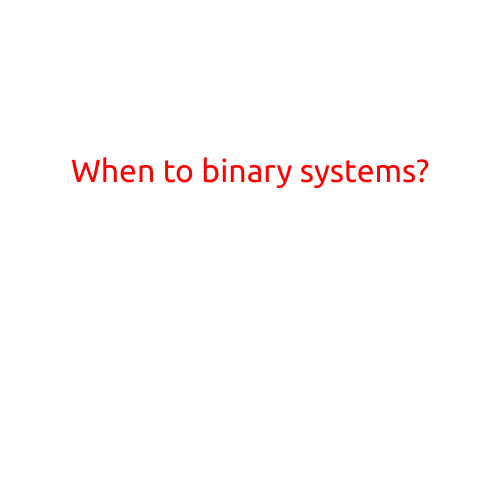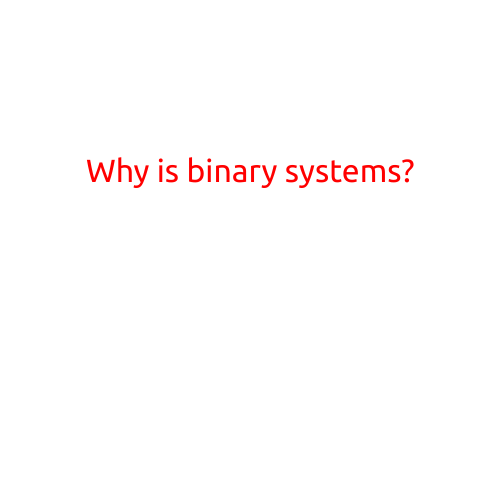
When to Use Binary Systems?
Binary systems, also known as binary numeral systems, are a type of number system that is used to represent numbers using only two digits: 0 and 1. This may seem simplistic, but binary systems are actually the foundation of modern computer technology and have numerous applications in various fields. In this article, we’ll explore when to use binary systems and their advantages and disadvantages.
When to Use Binary Systems:
- Computer Programming: Binary systems are the native language of computers. All computer programming is based on binary code, which is written using 0s and 1s to represent instructions and data. This means that binary systems are essential for programming and software development.
- Data Storage: Binary systems are used to store data on computer hard drives, solid-state drives, and other storage devices. This is because binary data can be easily written and read using electrical signals.
- Networking: Binary systems are used to transmit data over computer networks, including the internet. This is because digital signals, which are represented using binary code, can be transmitted more efficiently and securely than analog signals.
- Cryptography: Binary systems are used in cryptography to encrypt and decrypt data. This is because binary codes can be used to create complex encryption algorithms that are difficult to break.
- Sensor Applications: Binary systems are used in sensor applications, such as binary sensor data, where a sensor can detect one of two states (e.g., on/off, 0/1).
Advantages of Binary Systems:
- Simpllicity: Binary systems are easy to understand and implement, as they only require two digits to represent numbers.
- Efficiency: Binary systems are more efficient than other number systems, as they can be represented using fewer digits.
- Scalability: Binary systems can be easily scaled up to represent larger numbers and more complex data.
- Error-Free: Binary systems are less prone to errors, as there is no room for ambiguity or misinterpretation.
Disadvantages of Binary Systems:
- Limited Precision: Binary systems have a limited precision, as they can only represent a certain range of numbers.
- Difficulty in Understanding: While binary systems are simple in theory, they can be difficult for humans to understand and work with, as they are not intuitive.
- Limited Arithmetic Operations: Binary systems do not support arithmetic operations like adding or subtracting large numbers, as they are limited to simple binary operations like XOR and AND.
Conclusion:
Binary systems are an essential part of modern technology, and their applications are far-reaching. While they have their limitations, their advantages make them an ideal choice for programming, data storage, networking, and other fields. Whether you’re a programmer, data scientist, or just someone interested in technology, understanding binary systems is crucial for staying up-to-date with the latest developments and advancements.





